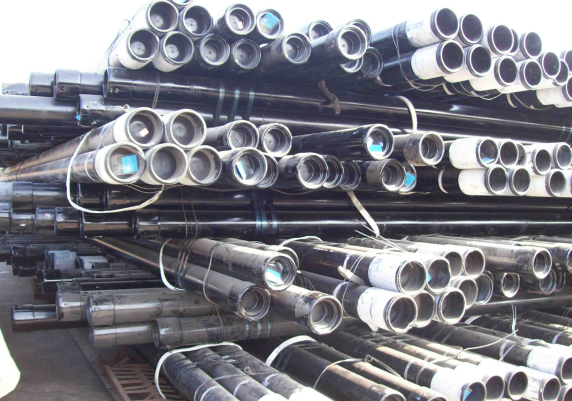If you want to understand how oil casing pipe is anti-corrosion and what anti-corrosion measures are available, you should first understand the type of oil casing.
Classification and uses of oil casing pipe:
1. Guide sleeve: Mainly used for drilling in oceans and deserts to separate seawater and sand to ensure smooth drilling.
2. Surface casing: It is mainly used for drilling, drilling through the soft surface strata to the bedrock. In order to seal this part of the stratum from collapse, it needs to be sealed with surface casing.
3. Technical casing: used in the drilling process of complex formations. When encountering complex areas such as collapse layers, oil layers, gas layers, water layers, lost circulation layers, salt-gypsum layers, etc., technical casing needs to be installed for sealing. Otherwise drilling would not be possible.
4. Oil layer casing: When drilling reaches the target layer (layer containing oil and gas), oil layer casing must be used to completely seal the oil and gas layer and the upper exposed strata. The inside of the oil layer casing is the oil pipe. The oil layer casing runs deep into the well among all types of casing, and its mechanical properties and sealing performance requirements are also very high.

The anti-corrosion of oil casing pipe is mainly divided into:
1. Apply anti-corrosion coating on the outer wall.
2. Apply anti-corrosion coating on the inner wall.
3. Apply anti-corrosion cooling coating.
With oil casing being used in the harsh oil extraction industry in polar and oceanic areas. It is required that the material and structure of oil casing must have good node properties, excellent physical properties, stable chemical properties, and a wide temperature adaptability range. If this is not possible, the oil casing should be coated with an anti-corrosion coating. To help him cope with the harsh usage environment. Applying a coating to the outer wall is used to reduce external erosion. The anti-corrosion coating on the inner wall is to reduce friction, reduce corrosion in the pipe, and increase oil transportation. The anti-corrosion insulation coating is used to transport crude oil and fuel oil and reduce the heat dissipation from the pipeline to the soil.
Anti-corrosion countermeasures for oil casing pipe:
1. First, ensure that water quality meets standards and strictly monitor and manage water quality. Implement separate cleaning and injection, strengthen the cleaning work of main water pipelines, ensure that the water quality in the station and at the bottom of the well meets the standards, and reduce the introduction of corrosion sources into the annular space;
2. For water injection wells that have been newly put into production, use annular protection fluid mainly for sterilization, and form a system to add it regularly;
3. In view of the acceleration effect of mechanical scratches on the corrosion of oil casing, it is recommended to add a rubber ring to the coupling of the oil pipe or a centralizer to the severe deviation of the well to prevent the oil pipe from scratching the casing and during the water injection process. One side contacts the casing;
4. In view of the severe bacterial corrosion under the scale and the slow growth of SRB at high temperatures, high-temperature water or water vapor of 100 degrees Celsius can be regularly injected into the annulus to kill the SRB under the scale;
5. Before the corrosion in the water injection well casing is effectively controlled, it is not recommended to promote the use of cathodic protection and coated casing.
Go here to learn more: Difference between casing pipe and drill pipe


